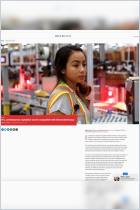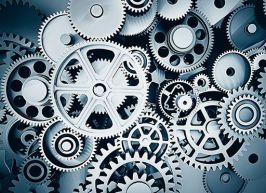Rejoignez getAbstract pour lire le résumé !

Rejoignez getAbstract pour lire le résumé !
Robert P. Jones, Daniel Cox, Juhem Navarro-Rivera, E.J. Dionne Jr. and William A. Galston
Do Americans Believe Capitalism and Government Are Working?
Religious Left, Religious Right and the Future of the Economic Debate
Brookings Institution Press, 2013
Aperçu
Americans want more help from their government. And more jobs. And better healthcare.
Recommendation
Robert P. Jones – CEO of the Public Religion Research Institute – and his colleagues from both PRRI and the Brooking Institution – surveyed Americans’ economic values. They asked respondents about the federal government, capitalism, equal opportunity, personal responsibility and values. They examined evolving religious coalitions and how they might affect America’s economic future. In many instances, the results proved predictable. Americans worry most about the lack of jobs, the national debt, the cost of health care, and the gap between rich and poor. Democrats and minorities want to raise taxes and spend money on social programs; Republicans and Tea Party respondents do not and express a belief in traditional values. However, responses from those who long for help from Washington suggest a nationwide drift toward the left. getAbstract recommends this highly accessible, informative report to economic planners, political officeholders, futurists and those curious about contemporary America’s economic pulse.
Summary
About the Authors
Robert P. Jones, PhD, is CEO of the Public Religion Research Institute, where Daniel Cox is the research director and Juhem Navarro-Rivera is a researcher. E. J. Dionne is a senior fellow at the Brookings Institution where senior fellow William A. Galston holds the Ezra K. Zilkha Chair in the Governance Studies Program.


























Comment on this summary